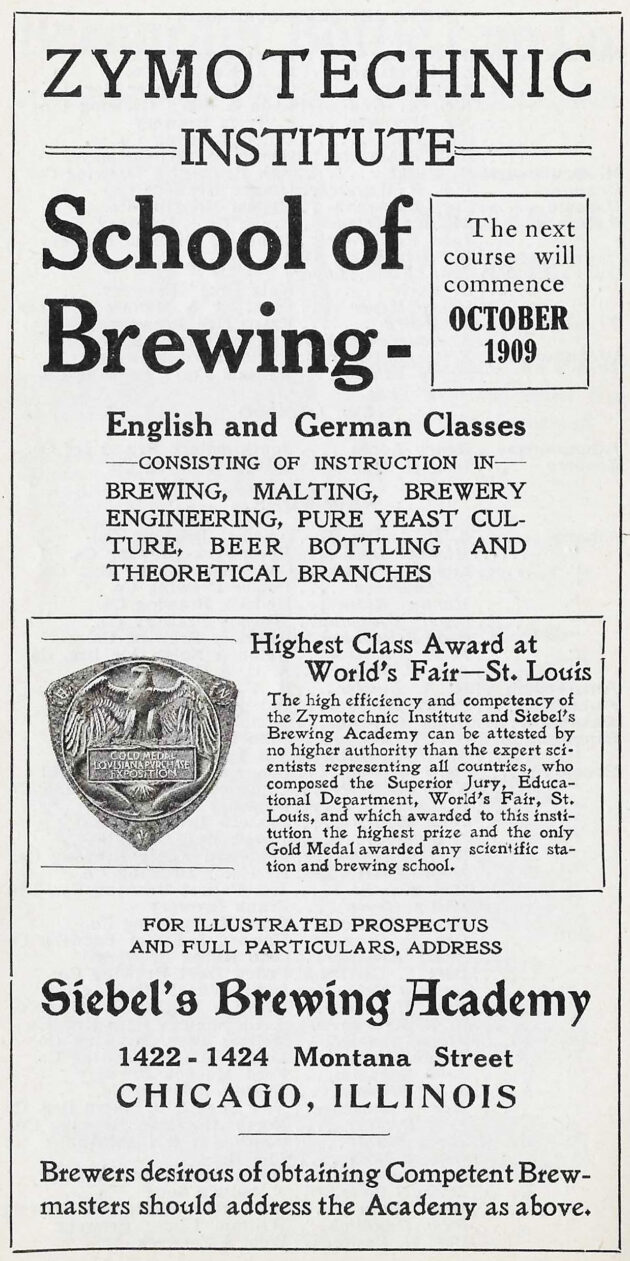"The object of the institute is to promote the progress of the industries based on fermentation, which is done by instruction, investigation, analysis and otherwise." Dr. John Ewald Siebel, founder of the Siebel Institute of Technology, Chicago, Illinois.
Dr. John Ewald Siebel was born on September 17, 1845, near Wermelskirchen in the district of Dusseldorf, Germany. He studied physics and chemistry and earned his doctorate at the University of Berlin before moving to Chicago in 1866. In 1868, he founded John E. Siebel's Chemical Laboratory and the Zymotechnic Institute, which soon developed into a research station and school for the brewing sciences. In 1872, the company moved Belden Avenue on the north side of Chicago, and the business name was changed to the Siebel Institute of Technology. During the next two decades, Dr. Siebel conducted extensive brewing research and wrote more than 200 scientific articles, and worked on a number of books. He also acted as the editor of numerous technical publications, including the scientific section of The Western Brewer.
In 1882, he started a scientific school for brewers with another progressive brewer, but the partnership was short lived, and Dr. Siebel continued brewing instruction at his laboratory, and expanded the business in the 1890's when two of his sons joined the company. The company was incorporated in 1901 and conducted brewing courses in both English and German, and by 1907 there were five regular courses. In 1910, the school's name, the Siebel Institute of Technology, was formally adopted. With the approach of prohibition, the Institute diversified and added courses in baking, refrigeration, engineering, milling, carbonated beverages, and other related topics.
On December 20, 1919, just twenty-seven days before prohibition became effective, Dr. J. E. Siebel passed away. He dedicated more than fifty years to studying the brewing processes and educating brewers. Today, his name still inspires brewers from all over the world through the Siebel Institute of Technology.
